第44章 THE NIGHT OF CHARITY(6)
"Yes, my lord," she answered; and resumed her seat, trembling a little from the exertion and emotion of her address.
His charge to the jury began. It was very long, and the first half of it was taken up with windy rhetoric in which the Almighty was invoked at every turn. It degenerated at one time into a sermon upon the text of "render unto Caesar," inveighing against the Presbyterian religion. And the dull length of his lordship's periods, combined with the monotone in which he spoke, lulled the wearied lady at the bar into slumber. She awakened with a start when suddenly his fist crashed down and his voice rose in fierce denunciation of the late rebellion. But she was dozing again - so calm and so little moved was she - before he had come to apply his denunciations to her own case, and this in spite of all her protests that she had held the rebellion in abhorrence.
It was all calculated to prejudice the minds of the jurymen before he came to the facts and the law of the case. And that charge of his throughout, far from being a judicial summing-up, was a virulent address for the prosecution, just as his bearing hitherto in examining and cross-examining witnesses had been that of counsel for the Crown. The statement that she had made in her own defence he utterly ignored, save in one particular, where he saw his opportunity further to prejudice her case.
"I am sorry," he said, his face lengthening, "to remember something that dropped even from the gentlewoman herself. She pretends to religion and loyalty very much - how greatly she wept at the death of King Charles the Martyr - and owns her great obligations to the late king and his royal brother. And yet no sooner is one in the grave than she forgets all gratitude and entertains those that were rebels against his royal successor.
"I will not say," he continued with deliberate emphasis, "what hand her husband had in the death of that blessed martyr; she has enough to answer for her own guilt; and I must confess that it ought not, one way or other, to make any ingredient into this case what she was in former times."But he had dragged it in, protesting that it should not influence the case, yet coldly, calculatingly intending it to do so. She was the widow of a regicide, reason and to spare in the views of himself and his royal master why she should be hounded to her death upon any pretext.
Thereafter he reviewed the evidence against her, dwelt upon the shuffling of Dunne, deduced that the reason for so much lying was to conceal the damning truth - namely, that she knew Hicks for a rebel when she gave him shelter, and thus became the partner of his horrible guilt. Upon that he charged them to find their verdict "without any consideration of persons, but considering only the truth."Nevertheless, although his commands were clear, some of the jury would seem to have feared the God whom Jeffreys invoked so constantly. One of them rose to ask him pertinently, in point of law, whether it was treason to have harboured Hicks before the man had been convicted of treason.
Curtly he answered them that beyond doubt it was, and upon that assurance the jury withdrew, the Court settled down into an expectant silence, and her ladyship dozed again in her chair.
The minutes passed. It was growing late, and Jeffreys was eager to be done with this prejudged affair, that he might dine in peace.
His voice broke the stillness of the court, protesting his angry wonder at the need to deliberate in so plain a case. He was threatening to adjourn and let the jury lie by all night if they did not bring in their verdict quickly. When, at the end of a half-hour, they returned, his fierce, impatient glance found them ominously grave.
"My lord," said Mr. Whistler, the foreman, "we have to beg of your lordship some directions before we can bring our verdict. We have some doubt upon us whether there be sufficient proof that she knew Hicks to have been in the army."Well might they doubt it, for there was no proof at all. Yet he never hesitated to answer them.